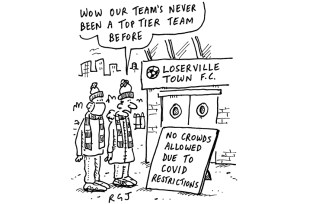Have you ever claimed to be ‘not racist’? If so, sorry, but you’re a bigot. Should this seem incoherent, then you’re clearly not well versed in critical race theory: a once niche academic field that has gone mainstream and popularised concepts such as ‘white privilege’, ‘white fragility’ and ‘systemic racism’. According to Ibram X. Kendi, author of How to Be an Anti-Racist, ‘the claim of “not racist” neutrality is a mask for racism’. Alana Lentin, author of Why Race Still Matters, takes it a step further, arguing that to be ‘not racist’ is ‘a form of discursive racist violence’. If you declare yourself not racist, it’s an unequivocal sign you’re an unrepentant white supremacist.
Confused yet? It gets worse. To be truly committed to racial equality, theorists argue, one must be ‘anti-racist’. Of course, no civilised person would be in favour of racism, so ‘anti-racism’ sounds a wonderful idea. However, it does not mean, as one might presume, ‘to be opposed to racism’. Rather, it is a core tenet of critical race theory which presupposes that racism permeates all human interaction. In other words, failure to observe racism does not mean that it is absent, but rather that one has not successfully detected it. As Helen Pluckrose and James Lindsay put it in their book Cynical Theories, the question is not ‘Did racism take place?’ but ‘How did racism manifest in that situation?’ Those trained in critical race theory are apparently uniquely qualified to make such determinations; the rest of us have to take them on faith.

Across the country, institutions and businesses are falling over themselves to assert their credentials in line with this new trend. Sadiq Khan has declared City Hall to be ‘a committedly anti-racist organisation’. The British Library has an ‘Anti-Racism Action Plan’ which has led its management to pledge that it would review its collections, ‘powerfully reinterpret’ statues of its founders, and put writers such as Ted Hughes on a watchlist because of tenuous connections to ancestors who may have been involved in the slave trade.







Comments
Join the debate for just £1 a month
Be part of the conversation with other Spectator readers by getting your first three months for £3.
UNLOCK ACCESS Just £1 a monthAlready a subscriber? Log in